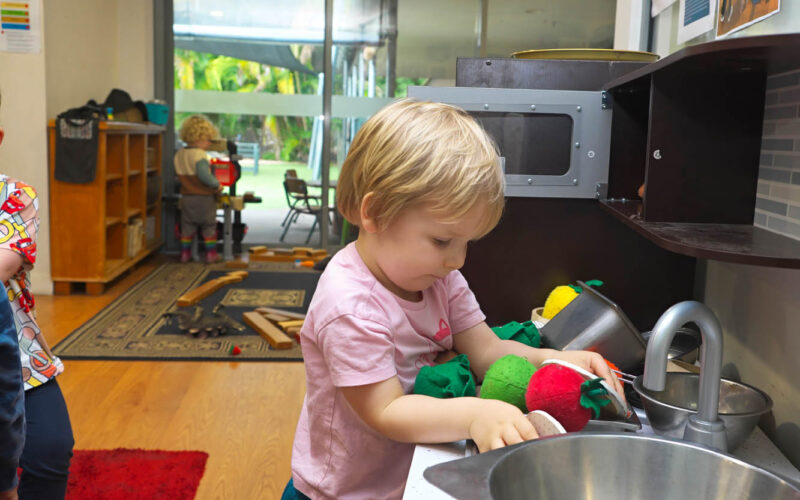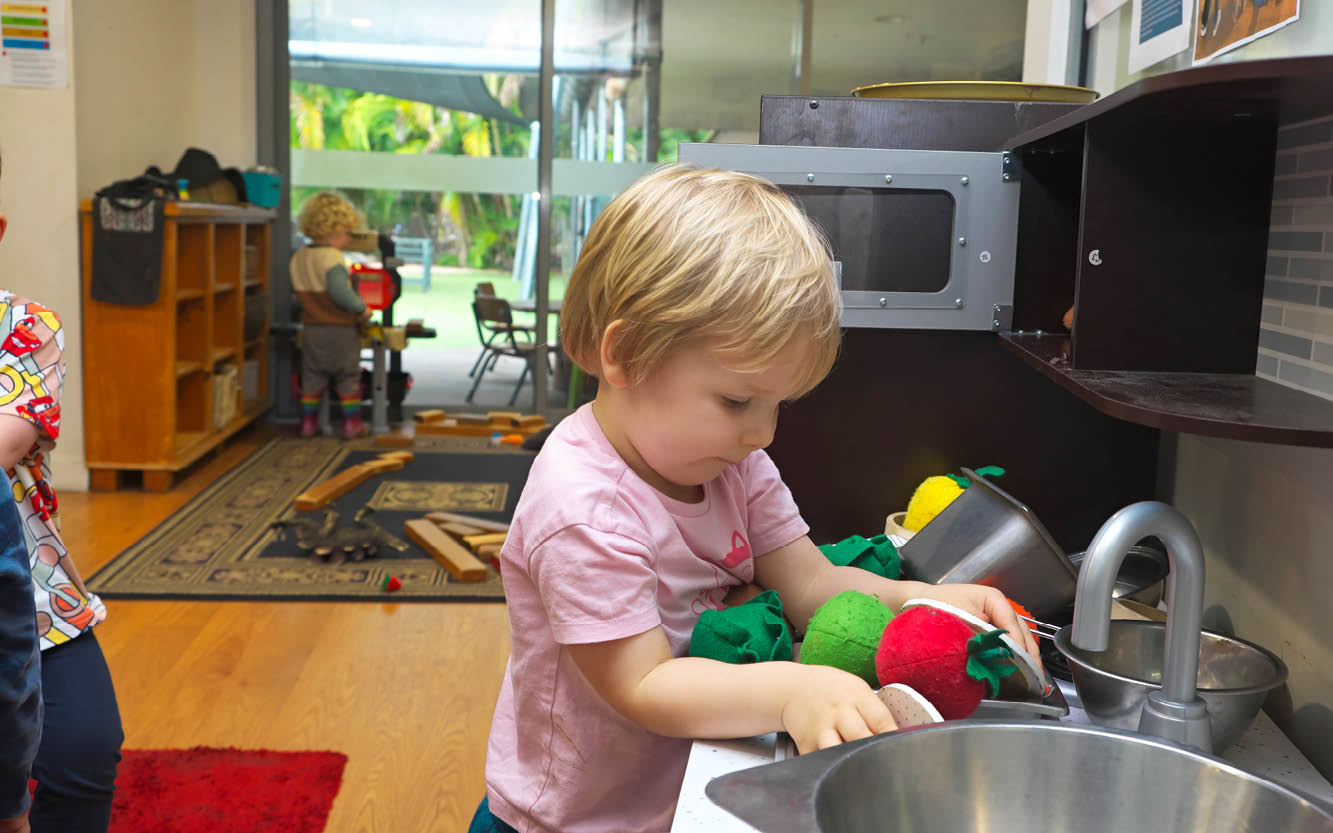

What is Emergent Curriculum?
Through emergent curriculum, educators observe and have meaningful conversations with children to learn about what interests, excites and motivates them. Educators use their deep understanding of each child to plan learning experiences that encourage their creativity, problem-solving, and participation. Rather than following a fixed plan with set outcomes, emergent curriculum grows from children’s own ideas, interests, and everyday discoveries.
The Key Principles of Emergent Curriculum
- Child-Led Learning: Educators pay close attention to children’s interests, questions, and their conversations with others. They use their understanding of each child as a foundation for planning play and enquiry-based experiences.
- Flexible and Responsive: Educators continuously reflect and build on observations and interactions, ensuring learning remains relevant to children’s current experiences.
- Project-Based Exploration: Learning is often structured around long-term projects that encourage problem-solving, collaboration, and critical thinking.
- Collaboration with Families and Communities: Parents and caregivers provide information, knowledge and resources about the child’s family and community context to help shape their learning experiences
- Play-based Learning: Fostering play-based learning is central to emergent curriculum. It allows children to express their creativity, test their ideas, and develop their social skills.
The Benefits of an Emergent Curriculum Approach
Emergent curriculum promotes:
- A Love of Learning: Children learn best when they are excited and intrinsically motivated by their learning experiences.
- Critical Thinking and Problem-Solving Skills: Children can ask questions, experiment, and seek answers through exploration and interactions with others.
- Social and Emotional Growth: Children learn within a social context, helping them to develop their communication, empathy, and teamwork skills.
- Creativity and Innovation: There’s no set outcome or “right answer” in emergent learning. Children are free to imagine, experiment, and express themselves in original ways.
- Inclusion: Learning is shaped by children’s backgrounds, interests and experiences, and therefore naturally incorporates diverse perspectives.
Emergent curriculum empowers children to be active participants in their own learning. It values their ideas, encourages their voice, and helps them make sense of the world in authentic, personal ways. By following children’s natural curiosity, educators create a dynamic environment where every child feels valued and inspired to discover the world around them.
Contact Us
If you have any questions or would like more information, please email us at childrensservices@theinfantshome.org.au